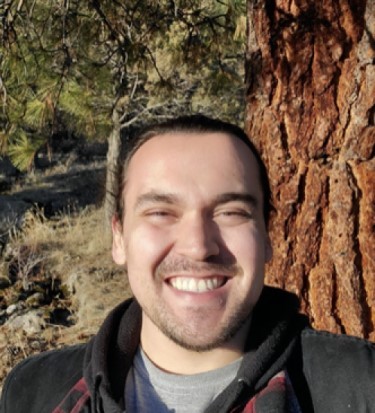Indigenous Studies Seminar: "The American Indian in Western Linguistic Inquiry: Toward Tribalized Language Research" with Joseph Dupris

The final 2022-2023 Indigenous Studies Seminar will take place May 25, 2023 at 4:00 p.m. ET on Zoom.
This presentation illustrates a research paradigm that centralizes tribes in community-based language projects in which the consent and approval of tribal polity energizes an approach to language research that does not require adherence to the colonial logics of western linguistic inquiry. An historical overview of detribalization reveals the need for an alternative approach that responds to the legacies of disaggregated indigenous polities and the strategies of governance and language regimentation that recategorize tribal persons as racialized, colonized subjects. Detribalizing logics provide a more satisfactory explanation for the worldwide loss of languages than do alternative discourses on endangerment.
Audience members will leave this presentation with the background to understand that revitalization is a theoretical lens used by language workers to effect change in the world through collective actions, not the object of language research itself. The rise of language revitalization movements since the eighteenth century are no more typical than the movements to professionalize Linguistics in the United States or any other nation. In both cases language becomes a terrain upon which groupness work occurs to address inequitable power relations and renegotiates those relations by mobilizing collective actions through language to solidify or challenge those relations. A comprehensive language research model should more holistically consider the individual, the collective, the cultural context, and provide explanatory accounts for language ecologies, material realities, and political processes.
The Library & Museum’s Indigenous Studies Seminar Series serves scholars and researchers working on projects in or aligned with Native American and Indigenous Studies. Questions about the series may be directed to Ruth Rouvier, NASI Engagement Coordinator, at [email protected].
NOTE: Seminars are designed as spaces for sharing ideas and works still in-progress. At the request of the presenter, this seminar will be recorded.
Joseph Dupris (Klamath Tribes; Modoc, Klamath, Paiute, and Lakota ancestry) is a Visiting Assistant Professor in Linguistics and Ethnic Studies at the University of Colorado in Boulder. He is part of the third generation of language revitalization practitioners in his home community of Chiloquin, Oregon. Joseph’s educational background includes a degree in American Indian Studies and minor in Environmental Science and Terrestrial Resource Management from the University of Washington, and a Master's in Native American Linguistics and Languages as well as a joint doctorate in Anthropology and Linguistics from the University of Arizona. His research works to sustain the political integrity of Indigenous nations through human and institutional capacity-building in language and land practices.
Joseph has worked with tribal communities throughout the western United States from Alaska to Arizona to document and/or revitalize their traditional knowledges through language work, and most recently collaborated with the Klamath Tribes (Klamath, Modoc, and Yahooskin-Northern Paiute) in Oregon. He is now collaborating with Modoc Nation, a sister tribe of Modoc who were exiled to Indian Territory 150 years ago, to establish similar foundations for language infrastructures in northeast Oklahoma. His hope is to help the Klamath Tribes and Modoc Nation work cooperatively through the International Decade of Indigenous Languages 2022-2032 (Decade) while developing a critical understanding of the political-legal histories that resulted in the outlaw and curtailment of tribal languages. This lays a foundation for his work to trace the figure of the American Indian in western linguistic inquiry.
With a critical understanding that the Decade is acutely focused on mainstreaming Indigenous languages to the UN 2030 Agenda for Sustainable Development, Joseph’s future work is to integrate land practices and language technology into tribal community, kinship, and relational structures that are just as dynamic as the lands and peoples that embody language.
